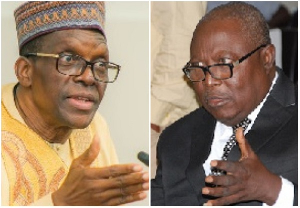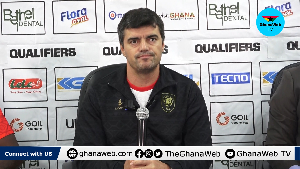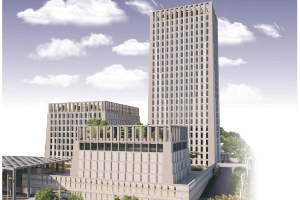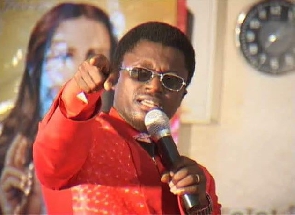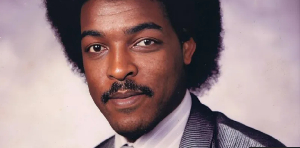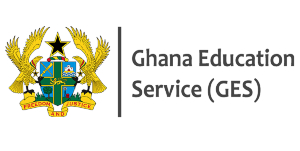THE NANA AKUFO-ADDO?S INDIGENOUS CAPITALISM- VIEWPOINT
Like any budding chief executive, determined to rescue a struggling business, Nana Dankwa Akufo-Addo, who the media extol as probable successor to President John Agyekum Kufuor wants to make his mark. He tells shareholders that they better invest their monies where their mouths are. The approach can be summed up as a salvage package for backsliding New Patriotic Party faithfuls, converts and doubting Thomases
Performing like our late Johnny Cochran, the Defence Lawyer in that Trial of the Century- the O. .J. Simpson?s case, Nana, save the Progress Party, castigated the ideological credibility of all past systems. An approach similar to what Cochran imprinted in the minds of the jury, the evidential proof gathered by the Los Angeles Police. Here, the failing NPP is branded partners of our monarchies that we must unquestionably remained serfs and loyal?
But, is our Akyem Abuakwa South Member of Parliament and Foreign Minister not famous for such stage triumphs as Osagyefo Dr Kwame Nkrumah, Martin Luther King Jnr. and perhaps, President(s) John Agyekum Kufuor and J. J. Rawlings? His detractors might gracefully admit even openly or in private. He is one of our few current generation politicians this writer too, admires so much. Not because of our ambiguous vocabulary handed down to us by our ancestors that ?whoever is labouring to transport ?something? to Kotoko, must be ditched.? This writer has read a lot of his speeches, among them the Role of Lawyers- the 8th Biennial conference of the African Bar Association, held in Abuja and last year?s African Union?s Day Speech of which he spoke extensively on responsible African Leadership and poverty.
So the prospect of seeing a new show by the NPP political Moses or erroneously put, Solomon, would have been fairly tempting, whatever the subject matter. What tips the balance of this ?indigenous capitalism? is that as usual, it exposes the hypocrisy surrounding personal prejudices and political correctness? The UP tradition is, it is fair to articulate, far from perfect on the question of what Nana pictured: ?..we had a strong multiparty parliamentary system with a popular ruling party led by the most charismatic of African politicians, Kwame Nkrumah, and a vigorous opposition led by one of the nation?s foremost intellectuals, Kofi Abrefa Busia, supported outside Parliament by Joseph Boakye Danquah, the father of modern Ghanaian nationalism. The prospects for successful governance and rapid development looked excellent??
Far from dismissing ideas as being conditioned responses to practical circumstances, this position highlights the degree to which beliefs and theories provide the wellspring of human action. Yes, the world is ultimately ruled by ?academic scribblers?. So does such a view suggest, for example, that indigenous capitalism, in important respects, as outlined by Nana, developed out of the indigenous memoirs of Dr Joseph Boakye Dankwa and Kofi Abrefa Busia? And that Nkrumahism was shaped by the writings of Osagyefo Dr Kwame Nkrumah and Ghana Social Democracy by Professor Fiifi Atta-Mills or Dr Flt Jerry John Rawlings? And that the history of authoritarian rule in Ghana can only be understood by reference to only the Preventive Detention Act of 1958 as amended or the boycott of Parliament and subsequent Kurulungu attempt?
Authoritarianism, Andrew Heywood says, is belief in or practice of government ?from above?, exercised over a population with or without its consent. It differs from authority that rests on legitimacy, and in that sense arises ?from below?. Authoritarians thinkers belief in the wisdom of established leaders or the idea that social order can only be maintained by absolute obedience. However, it is usually distinguished from totalitarianism, outright abolition of civil society- the practice of government ?from above?, that is associated with monarchical absolutism, traditional dictatorships and most form of military rule, is concerned with the repression of opposition and political liberty, rather than the more radical goal of obliterating the distinction between the state and civil society (Heywood, A., 2003, p84)
We need not remember our past pains, at least, not at this moment. So we shall not sail through the introductory aspect of Nana?s sermon which is an edifice of the consequences of our own self-fulfilling aspirations? Think about what Nana Dankwa paints on our civic responsibilities and the state of our education and agriculture. ?Ghana?s future depends on the accelerated growth of the economy, which is best fed by knowledge, particularly in the fields of science and technology. Thus, ..this university, which bears appropriately the name of the founder of our State, is absolutely crucial to designing and defining Ghana?s future perspective,? he said.
But what is meant by ?designing and defining? Ghana?s future perspective by our universities? In his article Financing higher education in Ghana, Paul Asobayire wrote that the question of financing higher education in Ghana has remained a contentious issue since the overthrow of Dr Kwame Nkrumah in 1966. The Dowuona recommendations represent the point around which the student clashes with government over its educational budget crystalise. But this committee was not the first to be set up. In fact six different reports- the Botsio (1960/61) Amissah (1963) Kwapong (1966-1967), Cockroft (1966) Busia (1967) and Russel Report (1969) preceded it. The main feature of the Dowuona Report, according to Asobayire is that its recommendations of removal of the students? maintenance grant and replacement of a mixture of scholarship etc never saw the light (WA Magazine, Sept. 1988, p1625)
It is argued that recommendations of the Dowuona Committee reflected the political temperature of that day. The Busia administration, which appointed it, was driven to the complete privatisation of the Ghanaian economy intent to remould it into Western laissez -faire economies? So Government enterprises were sliced and sold to private concerns, state farms disbanded, and a host of measures towards total divestiture of the state in business and the provision of social services similar to what we found ourselves under the P(NDC) era? In particular the bidding of the GIHOC? Thus who bought those farms and businesses and how did it happen? Were members of the so-called defunct CPP sympathisers and functionaries allowed to gamble in the bidding?
So, Nana is correct in illustrating that looking back in the last 49 years has been quite a national journey or eventful, no doubt. He is also right in finding answers to why it have to be this way. ?We took turns along the way that should have been avoided. To appreciate the Ghanaian journey so far one must compare it to a road travel from Tema to Gambaga? But even before you hit the Ofankor barrier, the traffic alone is enough to make a good man despair?. we have blown radiators and exhaust pipes; indicated left and turned right.. lost patience with other road users; we let the blood flow, motivated purely by road rage; we have jumped the lights; ignored road signs..?
In reality, these accounts are not one-sided. Political ideas, according to Heywood, are not merely a passive reflection of vested interests or personal ambition, but have the capacity to inspire and guide political action itself and so can shape material life. On the other hand, do political ideas emerge in vacuum? They do not drop from the sky like rain. All political ideas are moulded by the social and historical circumstance in which they develop and by the political ambitions they serve (Ibid, p2)
So why must we expect Nana to quote even a word from the Osagyefo when hoping a New Ghana- leading boldly the future of Africa ? Thus, the NPP-led Government is relying the restoration of our national confidence and the foundation of our national development in freedom, therefore, names such as Dankwa/Busia and Kufuor suffice?
From the perspective of behaviourism, one may assume that Nana wants to capture the attention of his audience. But should they not be told what they want to hear? We human beings are said to be little more than biological machines, conditioned to act or react to external stimuli: the thinking subject, together with our ideas and values.. This is similar to ?dialectical materialism?, the crude form of Marxism that dominated intellectual enquiry in the USSR and other orthodox communist states. This held that politics can only be understood in the light of the economic or class interests of those who express them. Ideas have a ?material basis?and no meaning on their own? Marxist therefore analyse political concepts strictly in terms of social class and treat political concepts as nothing more than expression of the interests of particular class? (Ibid)
Yes, our political journey had been a rough one, NPP inherited a huge unfilled aspirations. But has politics sometimes not been thought to be little more than naked struggle for power? Heywood argues that political ideas are mere propaganda, a form of words or slogans designed to win votes or attract popular support. They are simply ?window dressing?, used to conceal the deeper realities of political life? This is also a position supported by behaviourism, the school of psychology associated with John B. Waston (1878-1958) and B. F. Skinner (1904-90) (Heywood, A., 2003, p2)
However, Nana is making a case here: ?History teaches us that the greatest resource a society can possess is its people? the very continent that condemned great scientific minds like Giodano Bruno and Galileo Galilei on charges of heresy against Holy Scripture was the same continent that led and drove the Industrial Revolution.. Industrial Revolution was made possible through the adoption of science and technology? Thus, in the scheme of things, this university, which bears appropriately the name of the founder of our State, is absolutely crucial to designing and defining Ghana?s future perspective.? We have to digest deep into this message.
Pleading probably for forgiveness, the Foreign Minister relied heavily on the seminal essay of Alexander Gerschenkron: ?Economic Backwardness in Historic Perspective?, written in 1951. Presumably, an illustration of an avoidable errors and omissions committed under the P(NDC) regimes which of course shouldn?t have been repeated under the NPP?s Positive Change Government? Yes, Aberewa Dokua nana Dankwa evoked a lot of words and phrases: latecomer, emulate, should not really matter, to come along later, lies in an ability to leap, the gap of knowledge, practice separating the least advanced, we must rather view the gap, however huge it may seem, to canvas that the NPP, with its knowledge power, could front our burning development goals?
?We must send strong magnetic waves between potential and actual: to create a live tension of spurts of exceptional rates of development and growth. ?latecomer has the advantage of avoiding mistakes committed by its predecessor. This means latecomers can grow faster than their predecessors?.? Late growth, our learned Brother from ?Okyem Federation?, lectures with buoyancy that it is best based on the most modern and efficient technology as truly, the development of the so-called ?Asian Tigers? are there for all of us to see? But who is the latecomer here? Nana had long reasoned that the success of any NPP future presidential aspirant hinges on the present leadership- His Excellency, President Kufuor? So the electorate must be compassionate vis-?-vis NPP?s performance fore they had been on a political trek and unfortunately, had lost its marbles in the game? And if anything at all, we enjoy tranquillity ever than before?
?I would urge this gathering to spare a moment and take a good look around us to see and feel how strongly this air of freedom has been revived. Positive change is on ..The task now is to get the country to ignore the forces of negative resistance.. some of our compatriots.. largely of known political actors with apparently little significant mass support, may choose the unromantic street of protest, mingling the red day of Valentine with a grim touch of black. That.. is the diverse beauty of democracy.?
What is ?largely of known political actors with apparently little significant mass support?? What does it mean to say that all people are equal? Should people have rights, equal opportunities or political influence..? How do authoritarian views differ from those of, say, liberal, conservatives or socialists? An ideology is more or less coherent set of ideas that provides the basis for organized political action, whether this is intended to preserve, modify or overthrow the existing system of power. They (a) offer an account of the existing order, usually in the form of a ?world-view?, and (b) advance a model of desired future, a vision of the ?good society?, thus, ? explains how political change can and should be brought about- how to get from (a) to (b)?
As (a) and (b) above are linked, ?facts? in ideologies inevitably tend to merge into and become confused with ?values?. The implications of this is that no clear distinction can be made between ideology and science. In this light, it?s helpful for us to treat ideologies as paradigms, as employed by Thomas Kuhn in The Structure of Scientific Revolutions (1962) Political ideology then, can be seen as a set of principles, doctrines and theories that help to structure the process of intellectual enquiry.
So could ?Indigenous Capitalism? constitute a frame work within which our distracted search for political and economic knowledge might place a language of political discourse? The notion of ideology as an intellectual framework or political language is also said to be vital because it highlights the depth at which ideology structures human understanding. The tendency to deny that one?s own beliefs are ideological (while condemning other people for committing precisely this sin) can be explained by the fact that, in providing the very concepts through which our puzzled world becomes intelligible, our ideology is effectively invisible. We fail or refuse to recognize that we look at the world through the veil of theories, presumptions and assumptions that shape what we see and thereby force meaning on our small Ghana?
The second mixture, the fusion of thought and action, reflected in the relationship between offer an account of the existing order and explain how political change can and should be brought about, is no less significant. Seliger (1976) drew attention to this when referring to what he called the ?fundamental? and ?operative) levels of ideology. At a fundamental level, ideologies resemble political philosophies in that they deal with abstract ideas and theories, and their proponents may at time seem to be engaged in dispassionate enquiry. Although the term ?ideologue? is often reserved for crude or self-conscious supporters of particular ideologies, respected political philosophers [ Dankwa/Busia and Nkrumah] such as John Locke, John Stuart Mill and Friedrich Hayek each worked within and contributed to the ideological tradition.
So at an operational level, ideologies could take the form of broad political movements, engaged in popular mobilization and the struggle for power. Ideology in this guise may be expressed in sloganizing, political rhetoric, party manifestoes and government policies. While ideologies must, strictly speaking, be both idea-oriented and action-oriented, Heywood argues that certain ideologies are undoubtedly stronger one level than the other. For instance, fascism has always emphasized operative goals and if, you like, politics of the deed. Anarchism, on the other hand, especially since mid-twentieth century, has largely survive at a fundamental or philosophical level.
Thus, we are not surprised that this indigenous ideology, is littered with terms such as ?freedom?, ?equality?, ?fairness?, justice and ?rights? such as ?conservative?, liberal?, ?communist? and ?social democrats? are often employed either to describe one?s own views, or those of others. What are your views on this concept? Political floor is a feature of rival ideas so, is Nana not being ?bias? or bewildering in saying that humblest contributors to an African ballot box are voting with their heads. So a political party that delivers the guts need not fear obliteration by AK47s or the empty threats of a bombastic rabble rouser? ?If we are on the right road, there is room in the bus for all of us. It is only natural and reasonable that the latecomers are cautious. We have been through a collective hell, and it takes time to recover from hell,? he said.
Notwithstanding all these, Nana appears to have his ears and eyes widely opened in that he covers almost all aspects in our national debate. Women?s rights, the old and the youth, health, education and culture.. And most importantly, the need for us to craft a positive household names, rather than label ourselves ?rebellious? under-class, ready to grind. The state and our nananom shall be facilitators in this project. But would Nana not have found his marbles in this indigenous capitalism venture, had he told the world Ghana seeks help but no longer permanent financial crutches? We have been oppressed into this IMF and World Bank?s hell for long. And the time is long overdue for some courageous leadership to sets us free in the shortest possible time?







